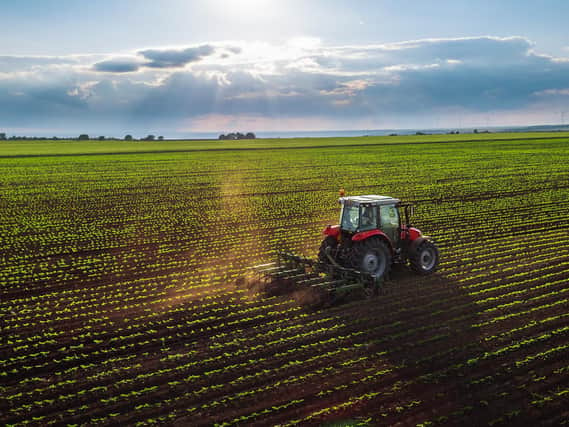Concerns raised by farming and rural organisations over lack of detail on the new 'public money for public goods' payment system


In the plan, Environment Minister George Eustice outlined the changes which will come into force over the next seven years to help farmers adapt and plan for the future outside the EU’s Common Agricultural Policy (CAP).
Mr Eustice said the Pathway to Sustainable Farming document, sets out how government aims to introduce a new system that is “tailored in the interests of English farmers, centred on support that rewards farmers and land managers for sustainable farming practices”.
Advertisement
Hide AdAdvertisement
Hide AdNext year marks the start of the transition away from the CAP Basic Payment Scheme (BPS) towards the new Environment Land Management Scheme (ELMS) which, Mr Eustice said, will be co-designed and tested together with farmers, land managers and experts, to ensure that the new systems work for them.
But Mr Eustice was challenged in Parliament by former Liberal Democrat leader Tim Farron who warned the reforms will lead to the decline of the family farm. Mr Farron said “hundreds upon hundreds of family farms (were) going out of business and therefore not being in a place to deliver those environmental goods by 2028”.
Mr Eustice said there was “an evolution not an overnight revolution” in the new arrangements, to allow farmers to adapt to the changes.
But Mark Coulman, national chairman of the Tenant Farmers Association (TFA), said: “There is broad acceptance that we need to change the way farmers are rewarded by reallocating money paid through the BPS into schemes targeting public benefits, productivity and resilience.
Advertisement
Hide AdAdvertisement
Hide Ad“However, the announcement made by Defra tells us, with great clarity, how much we will be losing in terms of the BPS without giving anything like the detail needed to understand how this can be recouped through the new schemes.
“We have been over four years discussing these policy changes and with only days to go before the plan comes into effect in January, it is inexcusable that we find ourselves in the position of lacking much of the essential detail.”
NFU president Minette Batters also raised concerns about the rate at which direct support reductions will take place.
“Defra has embraced many of the industry’s ideas for sustainable farming and food production in designing this new agricultural policy for England. However, the rate at which direct support reductions will take place, which we understand will not be applied in other parts of the UK, leaves English farmers with significant questions.”
Advertisement
Hide AdAdvertisement
Hide AdConcerns echoed by CLA president, Mark Bridgeman, who said the new ELM scheme has the potential to be a “genuinely world-leading policy” that will allow land managers and government to work together to reverse biodiversity decline and mitigate climate change, as well as deliver quality food, grown and reared to the highest standards.
“But,” he said, “the transition from the old system to the new is fraught with risk. Many farmers will find it hard to see past the drastic cuts to the BPS that begin next year. The average family farm will see cuts of over 50 per cent before the new schemes are fully available in 2024.”
Comment Guidelines
National World encourages reader discussion on our stories. User feedback, insights and back-and-forth exchanges add a rich layer of context to reporting. Please review our Community Guidelines before commenting.